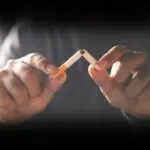National Toothache Day, which falls on February 9, serves as a kind reminder of the benefits and overall importance of dental hygiene. Toothaches, scientifically known as odontalgia, are exactly what they sound like, the pain generated from either one or multiple teeth. A toothache can make it difficult to eat, sleep, or sometimes even talk. While they are not worth celebrating, we all can hear up the ways to stop them for good.
History of National Toothache Day
While the origins of National Toothache Day are not clear, the unofficial holiday serves to remind people that looking out for your own oral well-being is of utmost importance to live a happy, healthy, and long life.
However, the history of the science that does tackle toothaches does go a bit farther. Dentistry is one of the oldest medical professions, with evidence being found as far back as 7000 BC. However, it wasn’t until 5000 B.C. that descriptions related to diseases related to teeth were discovered.
By the eighteenth century, dentistry had become a more defined and refined profession, reaching an important cornerstone when Pierre Fauchard, a French surgeon, published his influential book, The Surgeon Dentist, a Treatise on Teeth, which defined a comprehensive system for caring for and treating teeth, up to implementing dental fillings and discovering that sugar was a major factor in tooth decay.
In 1859, twenty-six dentists met in Niagara Falls, New York to form an overseeing entity they deemed the American Dental Association, ADA, composed of a national representative organization of dentists dedicated to encouraging high professional standards and scientific research, as well as trying to reach the general population about the importance of dental hygiene.
In 1873, Colgate had mass-produced the first toothpaste, and mass-produced toothbrushes followed suit, assuring everyone had some sort of access to tooth-cleaning products. However, good brushing habits were not mainstream in America until after the end of World War II, when soldiers stationed abroad brought the concept of proper dental hygiene back to their home country, and now, between straightening, whitenings, and much more processes, people give their teeth the attention they deserve.
National Toothache Day timeline
Egyptians are believed to have started using a paste to clean their teeth made out of powdered ox hooves', ashes, and burnt eggshells
People in China first cleaned their teeth with bristled brushes made out of bamboo or bone.
The tooth key was invented with the function to remove teeth when necessary.
Although Toothache Day is widely celebrated now, no one seems to know who created it.
National Toothache Day FAQs
When is National Toothache Day?
National Toothache Day occurs annually on February 9. Take this day to educate yourself on toothaches and how to prevent one from occurring.
When should I visit the dentist?
A regular yearly check to a dentist or a specialist is a good way to make sure to keep up the long-term health of your teeth. But you should visit a dentist if you notice any issue that causes discomfort, such as sensitivity, bleeding gums, broken teeth, cavities, or persistent toothaches.
Why do I need to floss?
Flossing completes the cleaning that brushing may miss. It manages to clean the plaque between teeth and under the gumline. If you don’t, this plaque can affect your teeth and gums in the long run, even to the point of having your teeth come loose.
How to Observe National Toothache Day
Make a promise to brush and floss
Refocus your efforts on your oral health and vow to brush and floss twice a day. Set yourself up for success by stocking up on toothbrushes, toothpaste, and floss.
Learn how to care for a toothache
Start by rinsing your mouth with warm saltwater and putting an icepack on your cheek to numb the area. If pain persists for more than two days, see a dentist.
Schedule regular dental appointments
Along with brushing and flossing daily, regular visits to your dentist can help prevent all tooth problems, including toothaches. Schedule cleanings twice per year and make sure to go, even with a busy schedule.
5 Facts About Teeth
Teeth can’t regenerate
Teeth are the only part of the human body that can’t heal itself.
38 days
Is the average amount of time spent by a person in their lifetime brushing their teeth.
Happens to everyone
Around three out of every four Americans will get at least one cavity by age 17
Like fingerprints
No two people have the same set of teeth, not even identical twins.
The toughest
The enamel on teeth is the hardest part in all your body, even more so than bone.
Why National Toothache Day is Important
It reminds us about oral health
Do you brush and floss two times per day? Taking time to think about and prioritize your oral health is an important step in keeping your teeth healthy and pain-free.
Toothaches encourage us to go for cleanings
After having one, you'll never want to have another again. While no fun, toothaches can help us be more proactive about visiting our dentists and scheduling regular cleanings.
Toothaches remind us to avoid sugar
Sugary foods can be a big reason people develop toothaches and other oral health problems. If you're trying to prevent a toothache, you'll likely avoid sugary foods which, in turn, may improve your overall health.
National Toothache Day dates
| Year | Date | Day |
|---|---|---|
| 2025 | February 9 | Sunday |
| 2026 | February 9 | Monday |
| 2027 | February 9 | Tuesday |
| 2028 | February 9 | Wednesday |
| 2029 | February 9 | Friday |
































